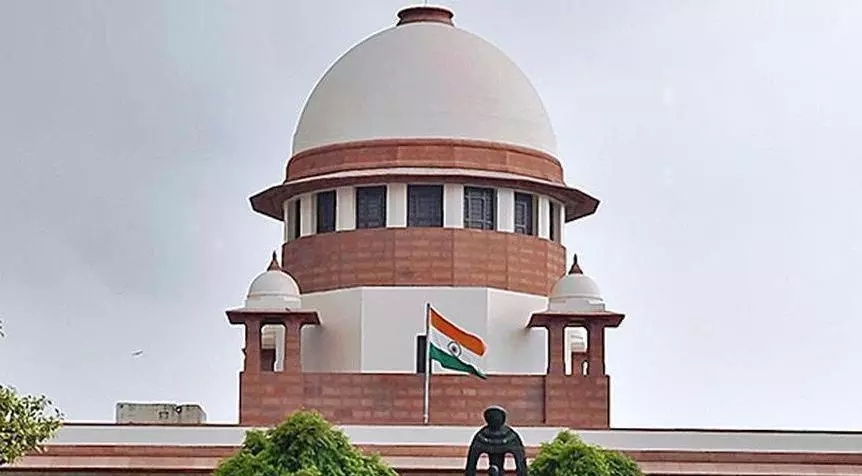
SC rejects demand for larger bench in Godhra convict’s appeal, cites strong eyewitness testimony
text_fieldsThe Supreme Court on Tuesday questioned the claims made by Abdul Raheman Dhantiya - convicted in the 2002 Godhra train burning case - that he was not present at the scene of the incident that led to the death of 59 passengers, including women and children, in the S-6 coach of the Sabarmati Express.
A two-judge bench comprising Justices J K Maheshwari and Aravind Kumar highlighted that multiple witness statements had placed Dhantiya at the site.
Witnesses testified to seeing him in the mob that pelted stones at the train and raised anti-national slogans. “The evidence remains unimpeached,” said the bench, referencing at least five individuals who had identified Dhantiya in court.
Senior Advocate Sanjay Hegde, representing Dhantiya, argued that his client was at home during the incident and cited the testimony of a police driver who had failed to name Dhantiya despite giving two statements. Hegde also pointed out that Dhantiya, a former Godhra municipal councillor, had helped supply water from his well to aid the fire brigade.
However, the court responded that assisting in relief efforts did not erase the serious allegations - presence at the site, stone-pelting, and incitement. The bench noted that the defence failed to question witness identifications during cross-examination and could not raise such arguments at this late stage.
The prosecution countered that it had presented a total of 50 eyewitnesses, including injured passengers, ticket holders, and non-ticketed travellers, to support its case.
Separately, the court rejected the plea to move the appeals before a three-judge bench, as demanded by Hegde, citing the 2014 Mohammad Arif judgment that mandated such benches for cases where the High Court upheld a death sentence. The bench clarified that since the Gujarat High Court had commuted the original death sentences to life imprisonment, the precedent did not apply.
“We have examined the relevant Supreme Court rules and do not find merit in the objections. Therefore, we will continue to hear the appeal as a two-judge bench,” the court concluded.






















